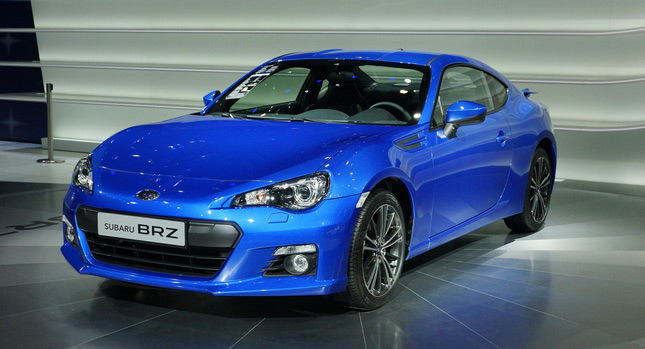It’s funny how things turn out sometimes. In September 2011, the Chinese government rejected a proposed joint venture between Subaru and Chery Automobile on the grounds that Toyota, which already has two plants in the country, is a shareholder in Subaru parent company Fuji Heavy Industries.
Failing to build a new plant in the world’s biggest car market must surely be labeled a failure on Subaru’s behalf, right?
Actually, after the Sino-Japanese furor about a group of islands and the anti-Japan sentiment that swept many Chinese consumers, this turned out to benefit Fuji Heavy Industries.
Subaru is the only Japanese carmaker without a plant in China, so it’s the only one not affected by the crisis which has resulted in Japanese companies closing down of factories, slashing production and experiencing a significant drop in sales.
“Selling cars in China is difficult now”, said Fuji Heavy Industries President Yasuyuki Yoshinaga during the launch of the new Forester, according to Bloomberg News. “Luckily we can cover the loss there by producing more cars for Japan and the U.S., since we don’t have a plant in China.”
While domestic rivals had to deal with idle plants, Subaru shifted more cars, like the sought-after BRZ sports coupe and the Impreza compact. This has helped the carmaker increase its 2012 profit forecast by 40 percent, while Fuji Heavy Industries’ stock recorded the greatest increase at the Nikkei 225 Stock Average, at 83 percent.
The Chinese government’s decision was “disastrous for Subaru and we had a very negative view at the time”, IHS Automotive analyst Masatoshi Nishimoto told the news site. “Their misfortune turned into a stroke of good luck after the anti-Japan protests. But in the long term, Subaru can’t do without China”, he added.
China is currently Subaru’s third biggest market, after the U.S. and Japan, but sales were slowing down: last year the company shifted 57,198 units, far more than the 35,348 it sold in 2009, but only 60 more than it did in 2010.
Despite Subaru planning to increase production at its Indiana, U.S. plant by 11 percent in 2014 and is considering further expansion in the U.S., Yoshinaga is not carried away.
In fact, he agrees with Nishimoto: “China is the largest vehicle market in the world and will continue to grow”, he said last month. “When we consider local production, besides the U.S., China is the place. This plan hasn’t changed.”
By Andrew Tsaousis
Story References: Bloomberg News
PHOTO GALLERY








![2014-Subaru-Forester-30[5] 2014-Subaru-Forester-30[5]](https://www.carscoops.com/wp-content/uploads/2012/11/a697a241-2014-subaru-forester-3025255b525255d25255b425255d-300x163.jpg)